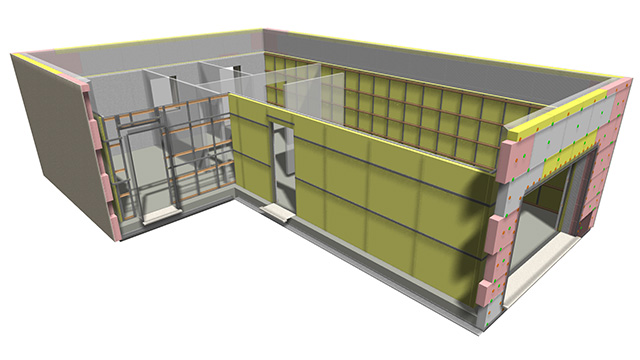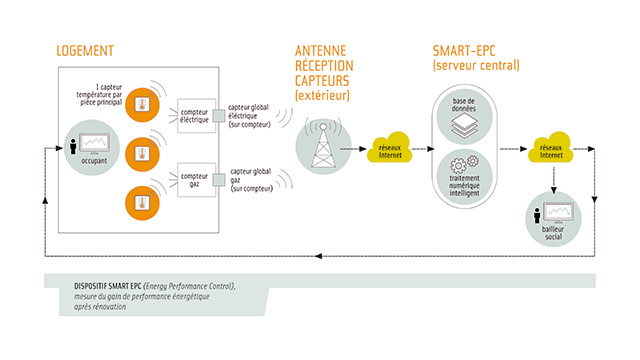A key factor to success in meeting the challenge of the energy transition is energy management, at the scale of individual buildings or a building stock, but also at local levels. Indeed, existing buildings represent the primary physical, economic, social and cultural capital of our societies. Their use is currently responsible for more than 40% of the world's consumption of final energy (UNEP, 2003), 44% in France, and fuel poverty affects nearly 7 million French people.
The CSTB has databases, simulation and characterization tools to help make strategic choices and control energy consumption, both at the scale of individual buildings and at the scale of a building stock, a neighborhood or a city.
Expertise
The CSTB offers services in the following areas of expertise:
strategic consulting for building stock managers
- defining assessment benchmarks for performance
- producing energy and environmental mapping of the building stock: segmentation by type, defining performance indicators and calculation and correction methods, statistical approach to performance, benchmark with the statistics of the French building stock, analysis of improvement potential, etc.
- defining a road map for progress: general objectives and associated action plan; simulation of scenarios and assessments of the socioeconomic impacts
- Tracking performance in the long term, analyzing trends and shifts
Monitoring energy performance guarantees: GPEI (initial state) and GRE (in operation)
- Commissioning plan: initial (adjustments), in service (detection of drifts and defects). Defining methods, carrying out missions.
- Measurement and Verification (M&V): defining and implementing the methodology, in particular according to the recommendations of the IPMVP
- Adjustment of consumption: this key step consists of correcting the performance indicators (especially consumption) for factors of influence, such as the indoor environment, occupancy and weather conditions.
- Analyzing service dysfunctions causing deviations between predicted and actual performance
Operational technical assistance with the implementation of improvement actions, in particular:
- integration of the energy and environmental challenges into the operational processes in place, such as taking account of the energy impact of maintenance work in arbitration of the annual program
- carrying out pilot operations (new or renovation), analyzing feedback and getting inputs on the strategy
- monitoring of buildings (using technology to track consumption and usage), expert analysis of the data
assessing the impact of energy management systems on comfort, consumption and the electric mains (Smart Grids)
supporting regional and local public policies
Resources
- multi-scale database on the French building stock
- Sketch Parc software produced by the research of the CSTB, enabling rapid mapping of the building stock
- dynamic energy simulation software at every scale of the neighborhood's components
- statistical computing cores: QIRIEL (statistical inference engine of the characteristics of buildings and their occupancy), CRONIQ (statistical generation of electric charge profiles)
- PEDAGO Laboratory: semi-virtual bench for energy management automation. Real control system connected to a digitally emulated environment and building
- SIMBAD simulation tool applied to Smart Grids







 Energy & Environment
Energy & Environment